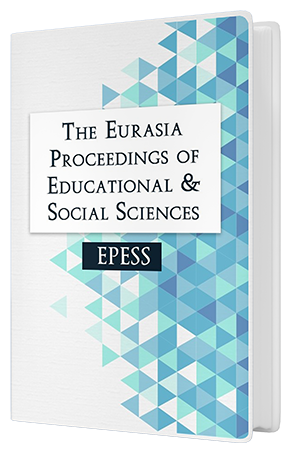FORECASTING EVALUATION OF SCHOOL ENVIRONMENTAL PROJECTS: FRAMEWORK AND RESEARCH OBJECTS
Keywords:
Environmental education, school educational projects, forecasting evaluation, diagnostic evaluationAbstract
Evaluation and inspection systems can provide valuable feedback to the school to build upon its achievements and meet the changing needs. Evaluation is treated as an integral part of the teaching and learning process and focuses on actual teaching practice, deeply transformative force in society, offering feedback and optimization processes. European Parliament and the Council, in 2001, set up the framework of the school evaluation processes with the recommendation to the Member States to establish transparent quality assurance systems and encouraged them to create a balanced framework of school self-assessments, and any external evaluations, to involve participation and stakeholders in all processes which can disseminate good practices, achievements of knowledge and experience. The initial assessment of educational projects is carried out before the start of a project to estimate some variables related to the development of the program. In this research, School Projects of Environmental Education of Heraklion, Crete (Greece) were checked about the prediction of evaluation concerning the planning and structuring phase. The research queries concerned the prediction of possible processes and techniques of initial evaluation, with criteria the analysis of needs, the recording of the objectives, the selection of type and model, the educational schedule and budget. An Evaluation Tool with the criteria of the projects’ forecasting evaluation applied in order to check if the design and planning are aims-centered, innovative, sustainable, participative and digital. Status of the assessment, in terms of validity, reliability, the persuasiveness, its acceptance, its use and ultimately its usefulness, depends primarily on the accuracy and appropriateness of the criteria usedDownloads
Published
Issue
Section
License
Copyright (c) 2016 The Eurasia Proceedings of Educational and Social Sciences

This work is licensed under a Creative Commons Attribution-NonCommercial-ShareAlike 4.0 International License.
The articles may be used for research, teaching, and private study purposes. Any substantial or systematic reproduction, redistribution, reselling, loan, sub-licensing, systematic supply, or distribution in any form to anyone is expressly forbidden. Authors alone are responsible for the contents of their articles. The journal owns the copyright of the articles. The publisher shall not be liable for any loss, actions, claims, proceedings, demand, or costs or damages whatsoever or howsoever caused arising directly or indirectly in connection with or arising out of the use of the research material. All authors are requested to disclose any actual or potential conflict of interest including any financial, personal or other relationships with other people or organizations regarding the submitted work.




